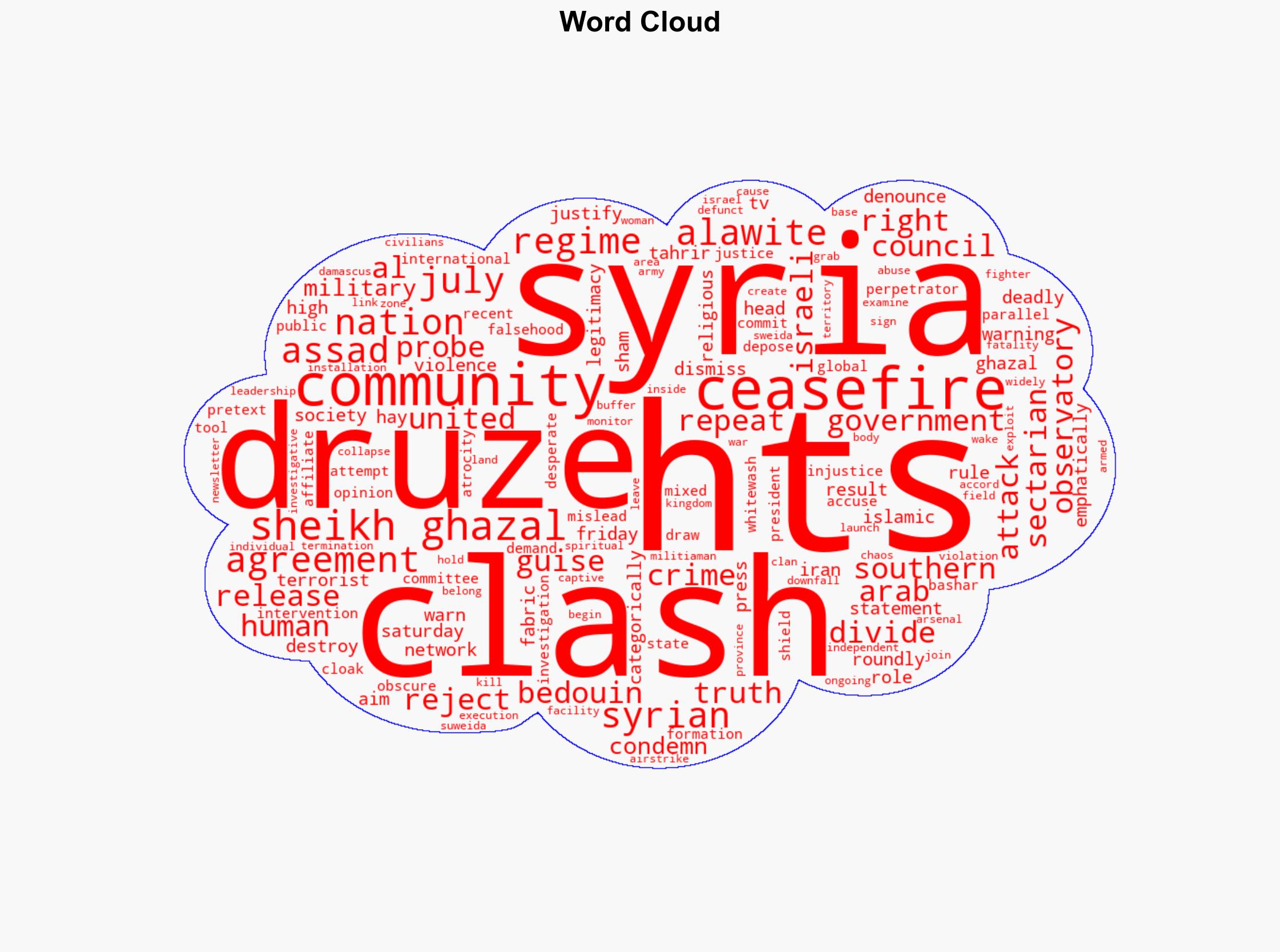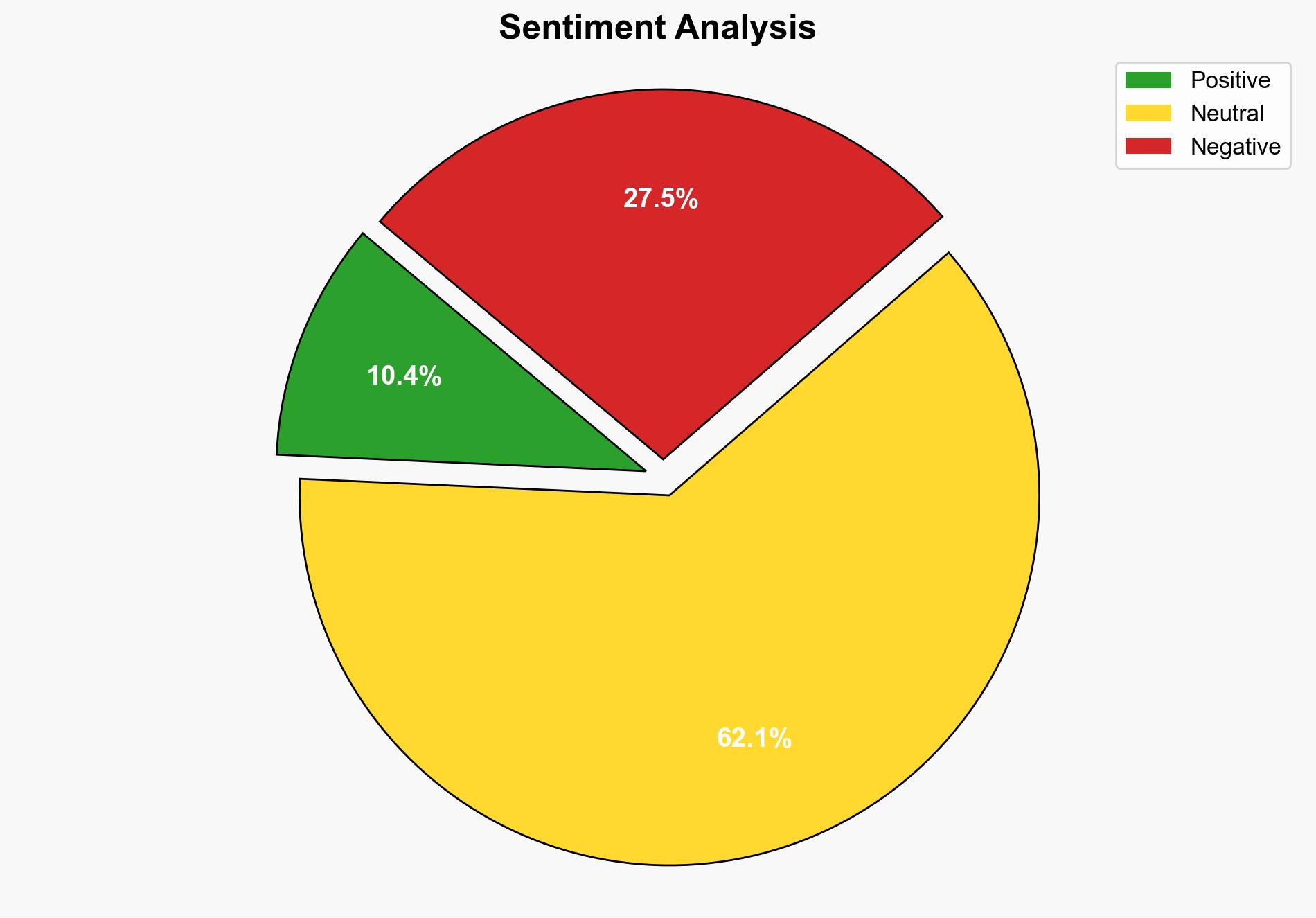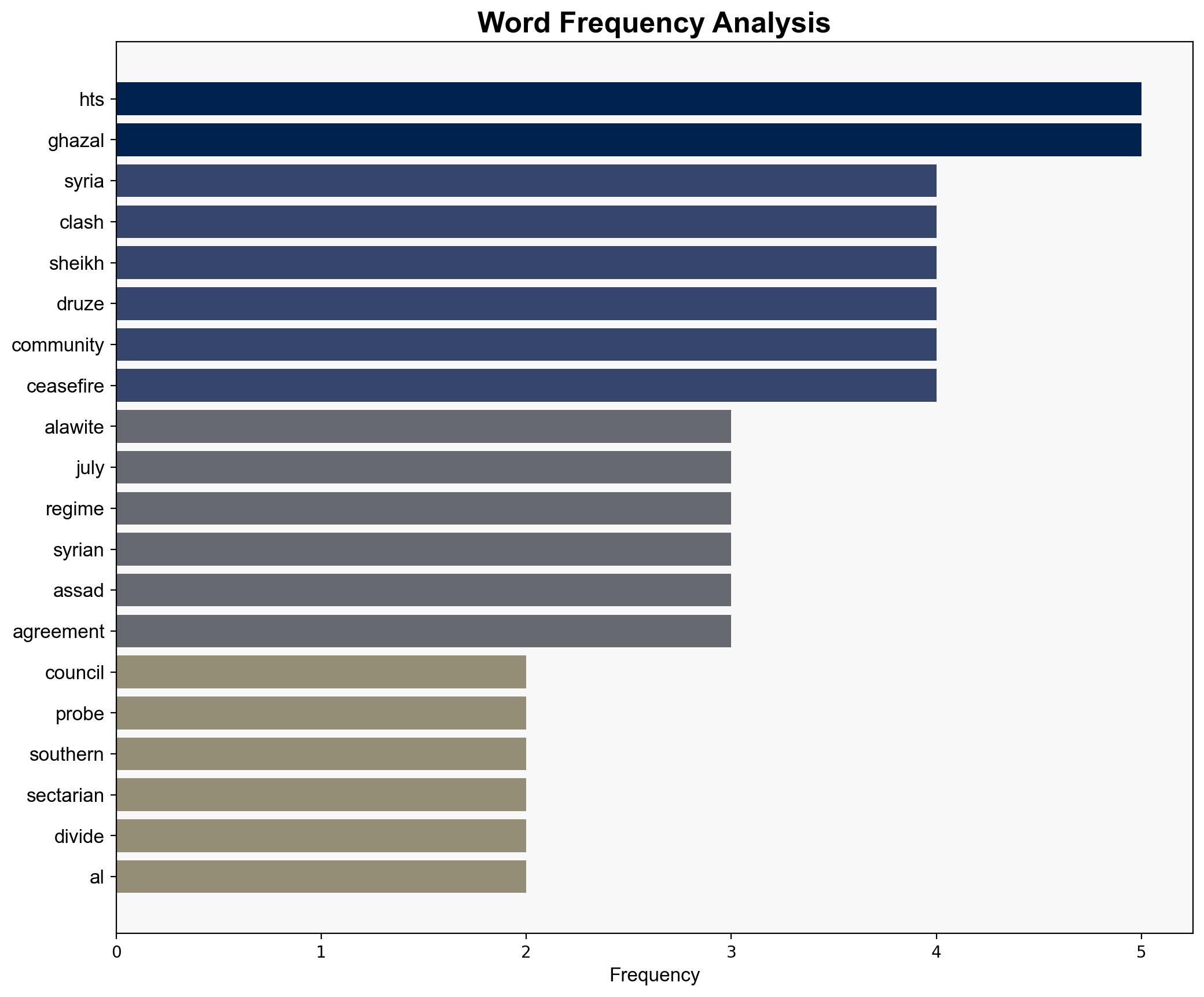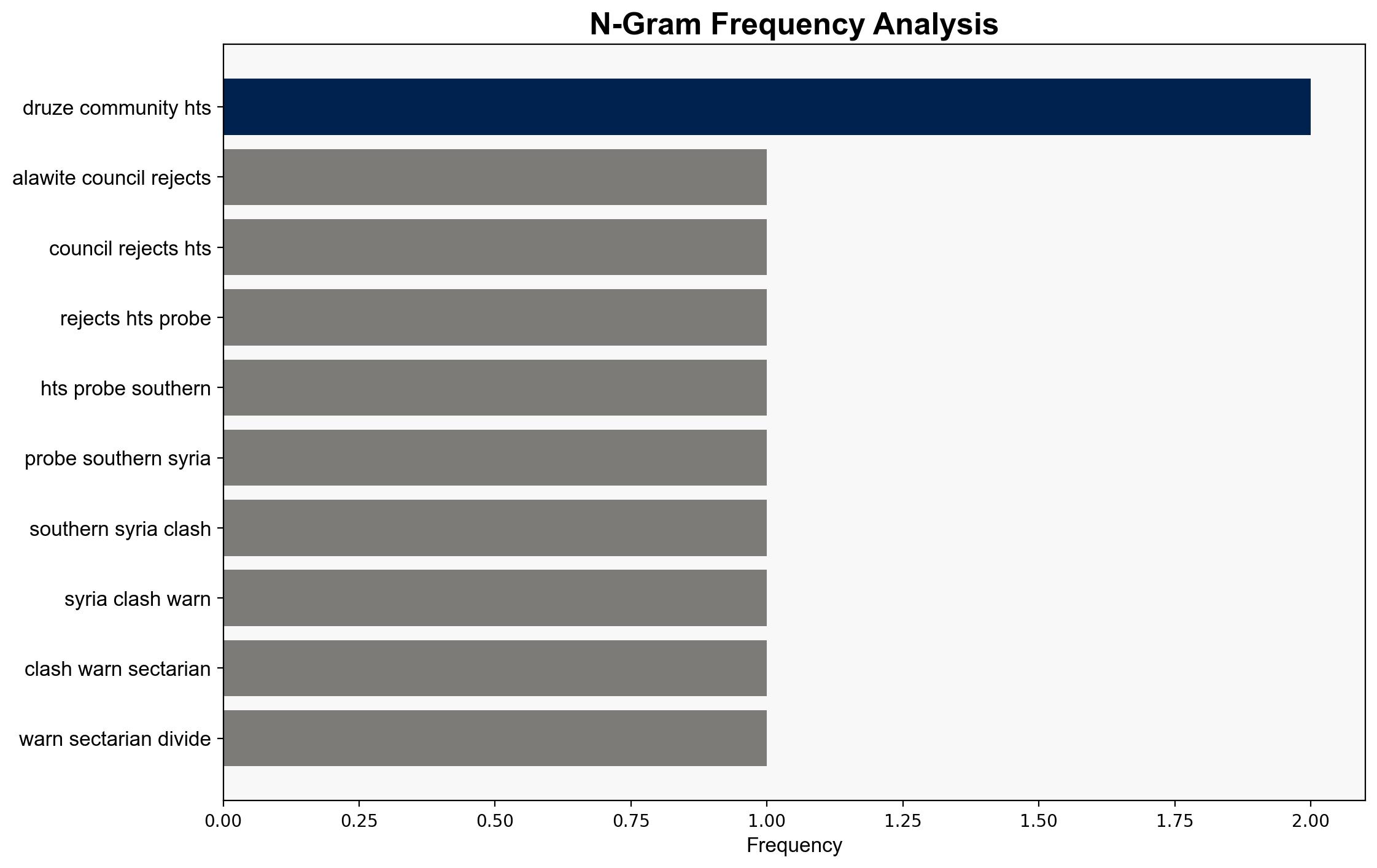Alawite Council rejects HTS probe into southern Syria clashes warns of sectarian divide – Globalsecurity.org
Published on: 2025-07-27
Intelligence Report: Alawite Council rejects HTS probe into southern Syria clashes warns of sectarian divide – Globalsecurity.org
1. BLUF (Bottom Line Up Front)
The Alawite Council’s rejection of the HTS probe into southern Syria clashes highlights a deepening sectarian divide, with potential implications for regional stability. The most supported hypothesis suggests that the Alawite Council’s stance is a strategic move to maintain influence and counter HTS narratives. Confidence level: Moderate. Recommended action: Encourage independent international investigations to ensure transparency and reduce sectarian tensions.
2. Competing Hypotheses
Hypothesis 1: The Alawite Council’s rejection of the HTS probe is primarily a defensive strategy to protect its community and maintain influence in the region. This hypothesis is supported by the Council’s emphasis on sectarian unity and its call for global intervention.
Hypothesis 2: The rejection is a strategic maneuver to delegitimize HTS and its allies, portraying them as instigators of violence and sectarian strife. This is supported by the Council’s denunciation of HTS as a terrorist network and its critique of international bodies as biased.
3. Key Assumptions and Red Flags
Assumptions:
– The Alawite Council has significant influence over its community and regional politics.
– HTS is perceived as a legitimate threat to sectarian stability.
Red Flags:
– Potential bias in the Alawite Council’s statements, aiming to shift blame and obscure internal divisions.
– Lack of independent verification of claims made by both the Alawite Council and HTS.
4. Implications and Strategic Risks
The rejection of the HTS probe could exacerbate sectarian tensions, leading to increased violence and instability in southern Syria. This may result in further regional fragmentation and potential exploitation by external actors such as Israel. The situation poses risks of humanitarian crises and could destabilize neighboring countries.
5. Recommendations and Outlook
- Encourage the formation of an independent international investigative body to ensure impartiality and transparency in examining the clashes.
- Facilitate dialogue between sectarian groups to prevent further escalation and promote reconciliation.
- Scenario-based projections:
- Best Case: Successful independent investigation leads to reduced tensions and improved sectarian relations.
- Worst Case: Escalation of sectarian violence, leading to regional instability and humanitarian crises.
- Most Likely: Continued low-level tensions with sporadic violence, requiring ongoing international monitoring and intervention.
6. Key Individuals and Entities
– Sheikh Ghazal Ghazal
– Hay’at Tahrir al-Sham (HTS)
– Syrian Observatory for Human Rights
7. Thematic Tags
national security threats, counter-terrorism, regional focus, sectarian conflict




